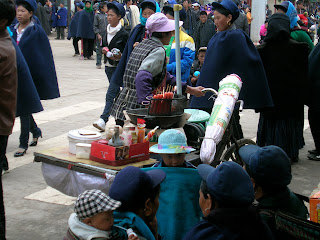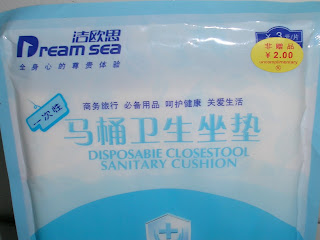I never got around to writing about the time Devin and I spent in southern Sichuan province, and I still hope to do that at some point. In the meantime, though, here are some photos from the market day in the county seat. Notice the many Yi minority women wearing "liberation hats"--blue cloth military caps. Apparently Yi women in this area used to wear extremely expensive, ornate headdresses that were so heavy they literally had trouble getting up once they sat down because the extra weight on their heads was so great. After the Communist victory in 1949, Yi women started wearing these blue caps instead. Having a particularly tall cap is trendy among teenage Yi girls, so many girls stuff their hats with toilet paper to make them sit higher on their heads. As much as I wish liberation caps were a widespread practice, it seems like they are limited to this one county--even in the next county over Yi women wore a totally different style of hat.
Also note the bizarre blanket-capes that many people, especially older people like the woman below, are wearing. These are homemade and are worn in cold weather instead of coats.












